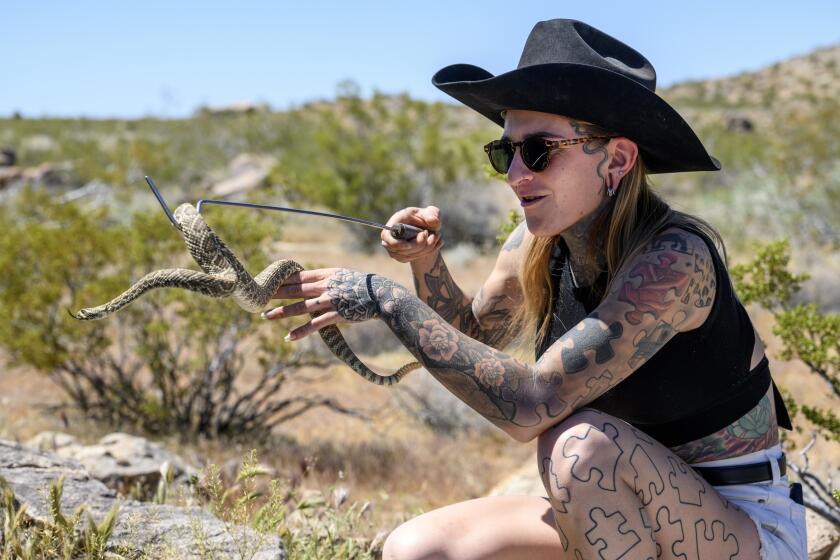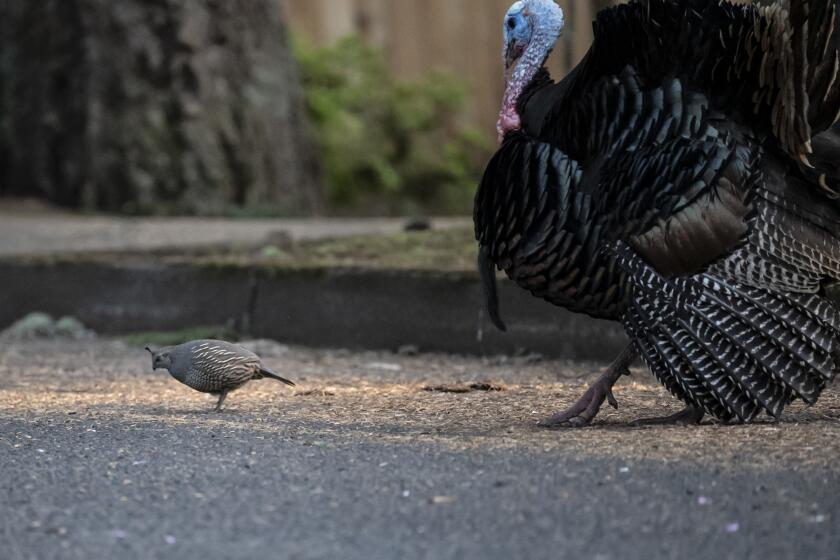Wildlife Officials Seize Ill Seabirds
U.S. Fish and Wildlife Service agents have removed at least 18 seabirds from an Irvine-based bird rescue clinic, including endangered brown pelicans recovering from botulism.
The birds, which were being treated by Pacific Wildlife Project in an area it rents at the Irvine Animal Care Center, were taken Friday night to an avian center at SeaWorld in San Diego.
Two of the birds--a gray white egret and a western gull--were euthanized Monday. Most of the other birds were in stable condition and could be released in a few days, SeaWorld spokeswoman Darla Davis said.
Federal law enforcement officials were tight-lipped about the actions but said Pacific Wildlife Project’s permit to rehabilitate animals had expired. The nonprofit organization is under investigation, said Jenny Valdivia, a Fish and Wildlife Service spokeswoman in Portland, Ore. But neither she nor anybody else with the agency would disclose the nature of the investigation.
Linda Evans, executive director of Pacific Wildlife Project, did not return repeated phone calls after the birds were removed.
Pacific Wildlife Project specializes in treating seabirds. Since 1996, the organization has been credited by animal rehabilitation experts with saving many brown pelicans stricken by avian botulism at the Salton Sea, southeast of Palm Springs. The U.S. Fish and Wildlife Service hires the group to treat the ailing birds.
Evans said the relationship between her organization and the federal agency had been rocky at times. She said federal agency staff members sometimes thought Pacific Wildlife Project was rehabilitating and releasing brown pelicans too quickly, and at other times too slowly. Or they’d question the number of pelicans turning up sick after being released, Evans said.
At other times, U.S. Fish and Wildlife officials chafed at what they were charged for the work, she said. Caring for a sick pelican can cost $300 to $400, depending upon the seriousness of the illness, Evans has said.
Evans said Friday that most of the birds brought from the Salton Sea were nearly dead when they arrived, and it was unreasonable to expect that all would be problem-free after being released.
Fish and Wildlife officials declined to comment on Evans’ statements.
It’s unclear what will happen to any remaining birds under Pacific Wildlife Project’s care. But Valdivia said an organization cannot house or rehabilitate the birds without a permit.
Of the birds taken to SeaWorld, two were brown pelicans, four were egrets, five were gulls, five were mourning doves, one was a raven and another was a heron, Davis said.
Pelicans contract botulism at the Salton Sea after eating bacteria-laden fish. Because the sea has no natural drainage and gets agricultural runoff, it is hospitable to bacteria, particularly during the desert’s hottest months, Fish and Wildlife officials say.
More to Read
Start your day right
Sign up for Essential California for news, features and recommendations from the L.A. Times and beyond in your inbox six days a week.
You may occasionally receive promotional content from the Los Angeles Times.







